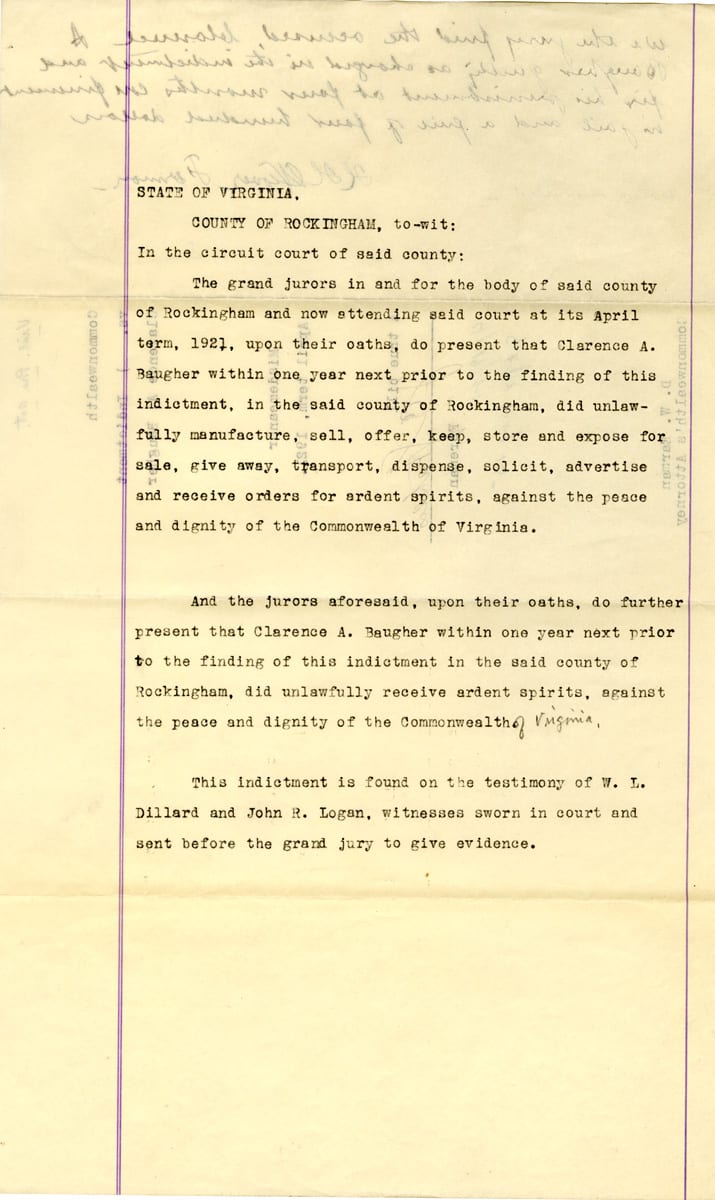December 19, 1916. The Daily News-Record
“Commonwealth v. Clarence A. Baugher”
Local enforcement officers seemed to have relied on tips and information provided by citizens.
Rockingham Sheriffs and Federal agents spent the majority of their time arresting marginal violators, the majority of whom were poor whites. The typical case, more often than not, arose from a citizens complaint and ended in a conviction. Local enforcement officers seemed to have relied on tips and information provided by citizens. Although any number of factors prompted Rockingham citizens to inform on bootleggers, the desire to enforce Prohibition dominates.
“The Boarding House”
The arrest of Clarence A. Baugher of Harrisonburg demonstrates the role citizen surveillance played in counties with strong support towards temperance. While living in Harrisonburg at a “rooming house” known as The Heights, he operated a small bootlegging business from his rental room “number two.” The operator of the boarding house, Mary A. Dolan became suspicious of Clarence, claiming in court that strangers regularly came and went from the room with packages as well as Baugher’s regularly made “suspicious phone calls” to a store in Elkton, Virginia.
Baugher’s use of the public phone initiated a chain of events that led to his arrest. After leaving for his work at a nearby construction site, Mrs. Dolan entered the room Baugher was renting and confirmed her suspicions. She immediately contacted a law officer who searched the room and found nearly 1.5 gallons of moonshine contained in three separate jars among his belongings.
Sheriff Dillard walked over to a nearby work site and found Clarence polishing a piece of timber. On the way back to the boarding house, Clarence confessed his deed. Perhaps seeking leniency he asked the Sheriff “on account of my little child, is there anything I can do?” Dillard said there was not. Ultimately, Baugher was found guilty and charged with four months imprisonment and a $400 dollar fine.
True Bill from the case of Commonwealth v. Clarence A. Baugher
Prohibition led to a greatly expanded penal system in the United States. This case raises the question regarding the pressures felt by citizens to inform on those who violated prohibition.

